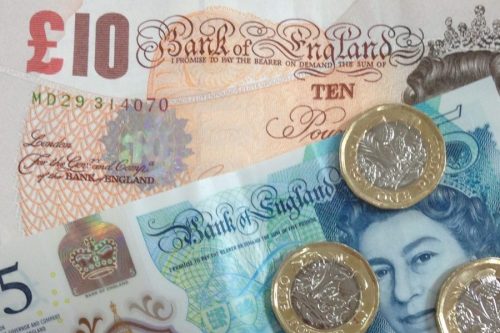Interest rates raised for 11th time to 4.25%

The Bank of England has raised interest rates for the 11th time to hit a near 15-year high.
The Monetary Policy Committee (MPC) voted 7-2 to increase rates by 0.25 percentage points to 4.25%. The two dissenting members wanted to keep the rate unchanged.
The MPC says whilst there have been “large and volatile moves in global financial markets in particular since the failure of Silicon Valley Bank and in the run-up to UBS’s purchase of Credit Suisse” which could have broader impacts, it has been briefed by the Financial Policy Committee (FPC) who say the “UK banking system remains resilient”.
The FPC judges that the UK banking system “maintains robust capital and strong liquidity positions”, and is well placed to continue supporting the economy, including in a period of higher interest rates.
As bank wholesale funding costs have risen, the MPC promises to monitor closely any effects on the credit conditions faced by households and businesses, and the impact on the macroeconomic and inflation outlook.
UK rates are now at its highest since October 2008 during the financial crisis. The announcement comes after the US central bank raised interest rates on Wednesday by 0.25% to 5%, despite the turmoil US banks have faced in recent weeks.
The MPC expects global growth to be stronger than predicted in February’s report, with wholesale gas and oil prices falling materially.
Laith Khalaf, head of investment analysis at Manchester investment platform, AJ Bell, said: “Stubbornly sticky inflation has prompted the Bank of England to raise rates again, but from here on in monetary policy is likely to be become more tentative while the bank surveys the economic impact of the breathtaking rise in the cost of money.
“In other words, the end of the rate-hiking cycle is nigh. It’s been a hell of a journey, and there have been casualties along the way. Bond funds, LDI pension funds, mortgage holders, and, more recently, the banking sector, have all suffered as a result of higher interest rates. Given the tectonic shift we have seen in monetary policy in such a short space of time it’s surprising there haven’t been more breakages, and we may not yet be out of the woods on that score.”
He added: “The shock spike in inflation in February, combined with some stimulus from the Spring Budget and a tight labour market have given the Bank confidence to raise the base rate for an 11th consecutive time. However, the Bank does say its inflation forecast for the coming quarter is lower than it was in February, thanks in large part to lower energy prices and the extension of the Government’s Energy Price Guarantee scheme.
“That would suggest a lower path for interest rates and as things stand we may get one more hike, or none, depending, of course, on the data coming in. We now have to wait almost another two months for the next interest rate decision, which allows for a lot of water to flow under the bridge.
“In monetary policy terms we are now gradually leaving the theatre of action and entering a period of circumspection. This is likely to mean interest rates plateauing from here, or only modest, less frequent adjustments being made by the central bank.

Laith Kalaf
“If inflation proves sticky, we may see rates creep up, but many of the dials are actually pointing in the opposite direction. Should inflation fall sharply as predicted, the spotlight will turn to when the central bank can provide some relief to consumers and businesses by reducing interest rates.
“This is likely to come into focus towards the end of this year and into the beginning of 2024. Monetary policy is becoming less of a one way bet, as the picture becomes more nuanced. One thing is for sure – absent a shock on the scale of the global financial crisis, we won’t be heading back to the exceptionally low interest rates that prevailed just a little over a year ago.”
Michael McGowan, managing director, Bibby Foreign Exchange at Bibby Financial Services, part of Liverpool-based Bibby Line Group, said: “The fight against inflation intensifies as the UK follows the ECB and Fed in raising interest rates by a further 0.25% – a move that wasn’t necessarily expected at the start of the week given the instability in the banking sector following the issues around Silicon Valley Bank and the forced marriage of Credit Suisse and UBS.
“But yesterday’s surprise rise in inflation has brought into sharp clarity the sense of nervousness felt by the markets, and left the Bank of England with little option but to use the only tool they have available to dampen the UK’s inflation.
“Today’s MPC decision may well have been a necessary evil to protect the UK’s weakened economy, but it won’t feel like that in the short term for small businesses struggling to maintain profitability. Higher interest rates will squeeze consumer spending and raise borrowing costs for businesses.
“The impact on the Pound should also be closely monitored by SMEs trading internationally as currency volatility remains one of the only certainties in today’s unsettled outlook. Robust foreign exchange strategies will be critical for SMEs to retain profit margins in 2023.”








